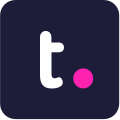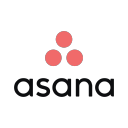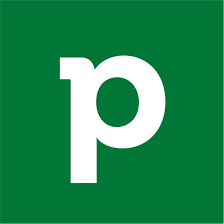The Best Project Management Software of 2025


The best project management software accelerates employee performance, improves productivity, and even makes it simple to organize tasks and projects so you can meet crucial deadlines. Some project management solutions feature things like time tracking and team calendars, while others include drag-and-drop boards where you can manage your staff.
Imagine being able to see exactly what your team needs to do each week, laid out perfectly on a convenient digital platform (rather than a complex spreadsheet). That’s what project management software is all about.
Today, we’re going to introduce some of the best project management tools, to help get your entire company running more smoothly.
How to Choose Project Management Software
As mentioned above, Project Management software is quite a broad umbrella term, used to refer to all kinds of tools suitable for companies who need help making the most of their team. The top project management software for your company will depend on what you want to accomplish.
When choosing a project management solution, ask yourself what kind of features are most essential in your company. If you exclusively want something to help you track employee projects, you won’t need invoicing and budgeting features. If you’re looking for a comprehensive manufacturing project management tool, you might need extra components, like inventory tracking.
Some of the most common features to look for in project management software include:
- Task prioritization: This shows exactly when certain tasks need to be completed in your to-do list, as well as who needs to complete them.
- Task scheduler: With a task scheduler, you can assign specific projects to certain members of your team, reducing overlap, and you can set deadlines.
- Shared calendar: A calendar makes it easier for you to see when upcoming project deadlines are, as well as when meetings are scheduled.
- Resource management: This feature ensures you never lose track of crucial materials.
- Time tracking: This ensures you know which team members are charging you for which billable hours.
- Communication and collaboration features: These often include things like chat features, video and audio conferencing, file sharing, and team dashboards.
- Budgeting features: Access to financial information, budgeting dashboards, and even professional invoicing tools
Figuring out exactly which features you need from your project management tool ahead of time will ensure you’re not paying over the odds for services which won’t have a positive impact on your business. With that in mind, let’s take a look at some of the best project management tools.
1. Monday.com
Our ‘Best Overall’ pick

Monday.com is an excellent project management tool if you’re looking to balance all of your team’s work in one convenient environment. There’s a huge feature list to explore, including tools for tracking design campaigns, marketing, IT, sales, and CRM. You can integrate other tools you use on a daily basis and access a convenient back-end environment.
Even if you’re new to project management, Monday’s proprietary task management and dashboard system is extremely easy to follow, with access to everything from resource management, time tracking and budgeting in the same place.
It’s the stunning presentation of the task management environment which makes Monday.com extra special. There’s even a handy free version for beginners, but it’s only suitable for two people to use at any given time – making it a bit limited for teams.
Pricing
Your starting price is directly correlated with the number of licenses you need for your team. Pricing can start at around $8 per month depending on how many people you want to add to your team.
or check out our ClickUp vs. Monday.com comparison.
2. Teamwork

Best for chat

Teamwork is a highly-rated tool for project management with more than 20,000 customers around the world. The project management software helps businesses to manage complicated projects from a range of environments with ease, with a fully scalable platform.
The Teamwork environment is easy enough to use, with a clean and simple interface where users can create projects and tasks, upload files, add comments and more. There’s even a set of advanced reporting features and dashboards so you can see which of your employees are performing as expected, and which you need to hold accountable.
With a free forever plan to get you started, it’s easy to jump in head-first with Teamwork. You’ll even get project management and task management tools with milestones and messages for free. Teamwork also has a fantastic instant chat app for collaboration.
Pricing
There’s a free plan for Teamwork users, which you can use to get a taste of some of the features. If you want to access templates, time tracking, invoicing, and chat, you’ll need to pay for at least the $10 per month plan. There are also a range of premium plans for those willing to pay extra for bonus features. Enterprise plans are available on request.
3. Zoho Projects

Best project management tool for sales teams

Zoho is one of the better-known tools in the sales environment, capable of integrating with a range of tools for conversions, customer relationship management and more. More than just a single application, Zoho has everything you need to keep your team running smoothly, from email management, to help desk software and CRM support.
Zoho Projects is the Project management system, where you can find everything, you need to support agile teams at an affordable price. You can view tasks in traditional or Kanban styles and set specific requirements for each project. You’ll also be able to track the time your users are active on the board – but it’s not an extensive feature.
Pricing
Though a free tier is available for Zoho Projects, you will only be able to manage up to 3 of your employees here. If you want a more feature-rich experience, you’ll need to upgrade to one of the premium plans which start at $5 per month per user. Discounts are available for annual purchases.
4. Trello

Best for convenient Kanban boards

Trello is the ultimate project management system for modern brands who like working with simple, convenient Kanban boards. Many project management tools can have a little bit of learning curve when you first start using them, but that isn’t the case with Trello. Here, you get a convenient landscape where you can manage projects by dragging and dropping them into different segments.
The platform is extremely flexible, suitable for all kinds of teams and projects, including marketing projects, software development, HR tracking, sales pipelines, and more. Trello is one of the most popular products on the market today, with boards, lists, and cards you can customize and expand as much as you like.
Customers can choose the view that makes the most sense for them when building their boards. There’s also a set of intuitive integrations with things like calendars and collaboration tools (Microsoft Teams and Slack) to help you stay connected.
Pricing
Pricing for Trello starts at $0 per month for your whole team, which will give you access to basic features and board management. If you need to manage more work at scale, you can upgrade to the cheapest package at $5 per month, per user. Enterprise packages are available on request.
5. Asana

Best for small businesses

One of the better-known project management tools available today, Asana is fantastic for keeping track of goals, to-do-lists, and more. This product is all about simplicity, designed to bring teams together wherever they are to work on shared goals and ideas. The Asana ecosystem is easy to use, with access to a comprehensive timeline system, boards for tracking crucial tasks, and more.
There are even options available to automate routine work. For instance, you can set up rules which ensure a crucial piece of content produced by a copywriter is sent straight to an editor when uploaded. The developers for the platform wanted to make the user experience as convenient as possible, even for remote and hybrid workers.
Like many leading project management tools, Asana also comes with access to integrations for a range of powerful tools like Slack, Outlook, Office 365, and Google Drive.
Pricing
Pricing for Asana starts with a free plan where you can access unlimited tasks, projects, messages, file storage, and activity logs for up to 15 people. There’s a premium plan for $10.99 and companies can also access an enterprise plan by contacting the Asana sales team.
6. Basecamp

Best for remote work
 One of the simplest, but most feature-rich project management tools available, Basecamp helps you do everything from keeping track of to-do lists, to accessing real-time group chat. For companies working with a range of remote employees, Basecamp is likely to be very appealing, thanks to it’s “automatic check-in” features for workers and message board.
One of the simplest, but most feature-rich project management tools available, Basecamp helps you do everything from keeping track of to-do lists, to accessing real-time group chat. For companies working with a range of remote employees, Basecamp is likely to be very appealing, thanks to it’s “automatic check-in” features for workers and message board.
Users can organize their Basecamp environment to suit their needs, access dashboards with documents and files, schedule information, and alerts all on the same page. You can track projects from multiple different environments in the same place, and there are some great mobile apps available too.
Basecamp promises companies a better way to work by allowing access to all communication tools, schedule alerts and other features in the same place. You can even integrate third-party time-tracking and budgeting tools.
Pricing
Unlike other project management solutions, Basecamp keeps things simple with a flat monthly range for everything you need. The price of $99 per months tarts after a 30 day free trial and includes unlimited support for projects and users.
7. Wrike

Best for customer support

Wrike is an attractive project management system similar to Trello in many ways. Like Trello, you can organize tasks into grids and boards. However, Wrike is considered to be a little simpler, with access to Gantt charts, useful dashboards and a comprehensive suite of reporting tools.
To streamline work outcomes, companies can create custom workflows to keep their staff on the same page, with automated triggers. You can upload files for your employees, set deadlines, and keep track of progress on a fully-aligned timeline. There’s even access to a time tracking tool, so you don’t have to worry about seeking out third-party integrations.
Wrike is a convenient tool that continues to add new features all the time, like a collaboration proofing and approval system. You’ll also be able to integrate your Wrike environment with other cloud solutions like Google Drive. Customer service is fantastic, with lots of support for people who need extra guidance getting set up.
Pricing
There’s no free version of Wrike. The cheapest package starts at $9.80 per month for up to 5 users, and you can also access a business package for between 5 and 200 users at $24.80 per month. If you need specific features or tools, you can contact Wrike for a custom plan.
8. Microsoft Project
Best for users of MS Office ecosystem

Ideal if you’re already comfortable with the Microsoft Office ecosystem, Microsoft Project is one of the longest-lasting products in the current landscape. Introduced in 1984, though only in a very simple format, Microsoft Project has evolved to become a must-have tool for many project managers. However, it does have a slightly higher learning curve than many of the tools we’ve covered so far.
With the same look and feel as most other Microsoft Office apps, Project will feel familiar if you’re used to things like Excel and Word. There aren’t a lot of tutorials or hints to help you otherwise, which can make this tool a little complex. On the plus side, you do get exceptional reporting tools, customizable project management flows, and integrations with leading tools.
Access to features like Microsoft Teams means you can also combine your project management solutions with collaboration, video and audio conferencing. There’s even support for things like file and screen sharing to help teams work more effectively together.
Pricing
Pricing starts at around $10 per user per month. You can also add support for Microsoft Project into your Office ecosystem if you already have an Office 365 subscription.
What are the Different Types of Project Management Software?
One of the biggest challenges of finding the right Project Management Software is figuring out what kind of solution you need. There’s more than one type of project management solution, based on both deployment and use case. For instance, deployment options include:
- Web-based SaaS tools: Software as a service tools or web-based project management offerings make it easy for people from all environments to share the same project management service. There’s no need to install any programs on a machine. Instead, everyone can access the service wherever they are as long as there’s an internet connection.
- Mobile project management: Specifically intended for people who spend a lot of time on the move, mobile project management is accessible through smartphone and tablets. Many web-based project management tools are available on both desktop browsers and mobile devices today.
- Desktop project management: Less common in the digital age, desktop management tools are installed into a specific computer or laptop to be used by singular users. This deployment type can be a little restrictive today.
Use types will also influence the type of project management tool you choose. For instance, there are “single use” or “personal” project management tools intended to keep individual people organized. You can track your own to-do lists, but don’t assign tasks to other members of staff. This project management system is often very straightforward and simple, which is why you can find many vendors offering personal functionality for free.
Collaborative project management tools are a lot more common these days. These are solutions which allow people from a range of environments to connect in the same space over an aligned goal or project. Most collaborative tools come with a range of features to help today’s teams stay productive. For instance, you might get boards with drag-and-drop task cards, and chat features so employees can communicate in real-time.
The majority of project management tools will also be flexible enough to integrate with other services. This ensures you can build the exact type of system you need depending on your industry and goals. For instance, you might also want to implement features for budget and invoicing management, or inventory management
Project Management Software FAQ
Q: What Is Project Management Software?
Project management software is technology designed to help teams and small businesses keep track of projects and meet crucial deadlines. These tools can help remote and hybrid teams to work together more efficiently or simply support an individual in getting more work done according to their specific schedules or needs. There are a wide range of project management tools available today, and some come with access to additional features like time tracking and invoicing.
Q: Who Needs A Project Management Tool?
There are all kinds of companies who can benefit from accessing project management software. If your team has employees working remotely or outside of the office, a project management solution should make it much easier for them to collaborate in real-time. You can use these services to improve productivity and ensure important tasks are completed on time too.
Q: Are Project Management Tools Easy To Use?
The simplicity of your project management tool will depend on a lot of different factors. Simpler tools with fewer features will take less time to learn. However, most project management services are built with ease of use in mind. This means you should be able to find a solution with a clean and simple interface, convenient features, and even helpful guides to get you started.
Q: Are Project Management Software Tools Expensive?
The price of your project management tool can range from a simple free software solution to an expensive and complicated service. Enterprise solutions custom-made for companies with specific requirements and compliance needs will often be more expensive than offerings for small companies. Despite an initial expense, a project management solution can help you to save money over time if it improves your chances of getting work done fast.
Project Management Software: Finishing Thoughts
The right project management software for you depends on a host of different factors, including how big your business is, what kind of goals you want to accomplish, and how many services you need. If you need a project management software that makes it easy to collaborate with remote members of your team, tools like Monday.com are extremely helpful, with check-in features and even messaging tools to keep people connected.
If you’re looking for a reliable Kanban-style project management tool, Trello could be the perfect option, with easy drag-and-drop functionality. For simple functionality with extra customer support, Wrike is a fantastic choice, with easy-to-follow gnat charts.
Which solution will you choose? Let us know in the comments below.
Related Products





